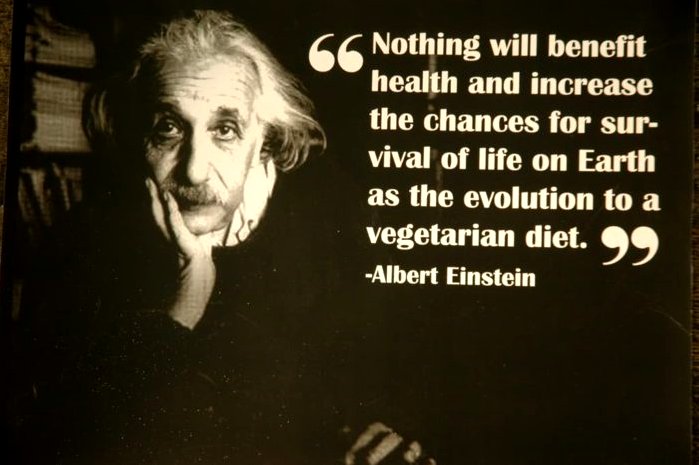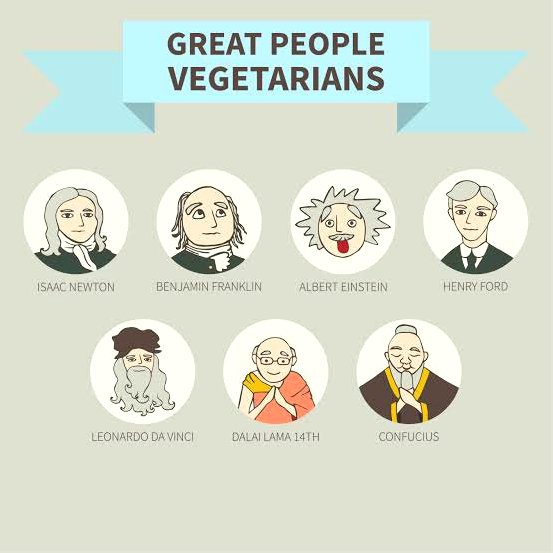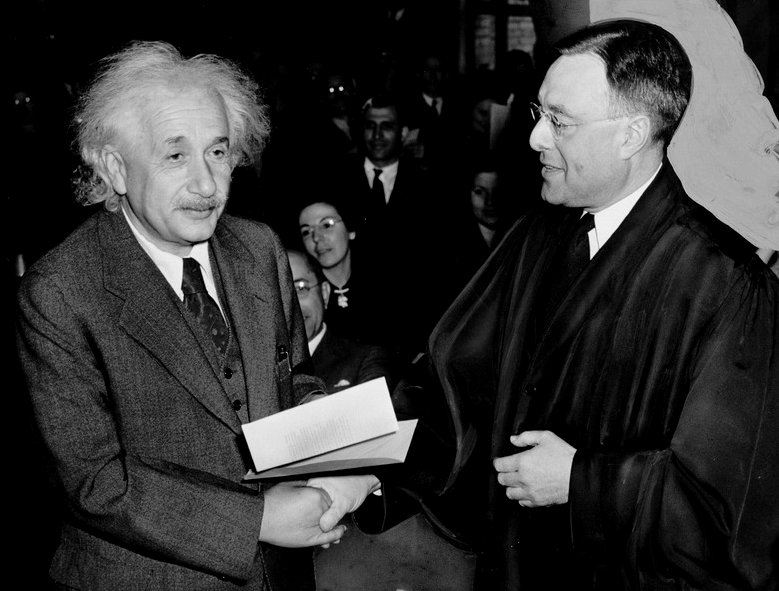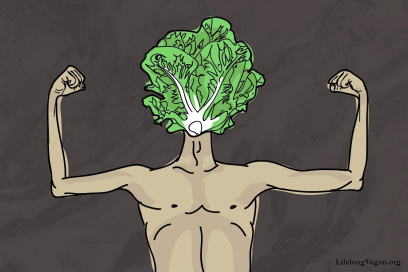Aspiring to the characteristics and abilities of prominent figures is something many of us take inspiration from. Albert Einstein was one of the world's most revered scientists, known for his groundbreaking theories on relativity that left an indelible mark on society. Einstein was widely revered for his principles of nonviolence, peace, and ethical treatment of all living beings - yet have you ever pondered his diet habits? As part of our effort to unravel this conundrum, which has befuddled many curious minds and inspired an archival scavenger hunt, we will conduct an in-depth exploration into Einstein's plant-based diet. Our goal is not only to ascertain whether Einstein was vegan or vegetarian, but to also uncover what factors influenced his food selections and led him to change his behavior. Explore Einstein's vegetarianism and pro-vegan diet through research. Furthermore, we will investigate any claims that Einstein followed an uncompromising vegan diet while untangling its mysterious influences and sources - figures like Mahatma Gandhi and Albert Schweitzer could all have played pivotal roles.
I. Einstein's Vegetarianism and Pro-Plant-Based Diet
Albert Einstein was undeniably a vegetarian. Without hesitation, he strongly advocated against meat consumption, proclaiming himself one of a group known as "lifelong vegetarians". What's even more intriguing and thought-provoking about his lifestyle choice was Einstein's belief in animal ethics - holding true to his conviction that all living beings deserve the utmost respect no matter the circumstance or necessity.
By giving up meat consumption, Einstein sought to demonstrate his strong commitment to this principle and champion its intrinsic worth for each living being. Yet it should be noted that vegetarians still consume animal byproducts like dairy and eggs; this implies Einstein might have taken part in such activities too; nonetheless it remains evident that the theoretical physicist advocated for an eating regimen consisting of more plant-based options.
Einstein expressed to his wife his eagerness to switch over to a diet with abundant fruits and vegetables, including fruits such as apples. The Nobel laureate noted how his health improved when consuming more plant-based meals; further, Einstein suggested numerous advantages associated with living a vegetarian lifestyle, including delaying heart diseases as well as other ailments.
Einstein wasn't alone in his staunch advocacy for leading a plant-based lifestyle; many other intellectuals of his time shared similar views and enthusiastically advocated vegetarianism - including Mahatma Gandhi who believed practicing vegetarianism could promote nonviolence by eliminating potential harm to other living beings.
Evidence of Veganism
Once we arrive at this question of Einstein's diet and veganism, evidence becomes abundantly clear that he maintained an austere vegan lifestyle. Einstein's diary entry from 1954 further supports this assertion. Einstein's passion for pro-veganism may have stemmed from ethical concerns for animal welfare, yet this great scientist understood its health benefits as well. We will now examine further proofs surrounding Einstein's veganism.
II. Einstein's Vegetarianism and Pro-Plant-Based Diet
As there is no hard evidence of Einstein following a strictly vegan lifestyle, his dietary preferences remain uncertain. There have been allegations, however, that Einstein observed a diet which excluded any item derived from animals; indeed he made an entry in his journal in 1952 explaining his decision and asserting it was both healthy and pleasurable to follow such an eating lifestyle. He went further by declaring his veganism not only healthy but also pleasurable!
Einstein had an intimate relationship with Albert Schweitzer, an animal rights activist and passionate supporter of veganism. Schweitzer may have played an influential role in persuading Einstein towards adopting veganism himself.
Einstein may have also been heavily influenced by his close friendship with Mahatma Gandhi, renowned for his advocacy of nonviolence and vegetarianism. Gandhi shared many discussions with Einstein concerning morality and ethics that may have had an effect on both their personal preferences as well as dietary decisions.
No matter the theories surrounding Einstein's diet, there remain those who maintain that he was no vegan. Their arguments include an internal letter written to his wife in which Einstein mentioned a preference for plant-based diets due to taste preferences; yet an entry from 1952 in Einstein's personal diary proves otherwise.
As evidence is limited on Einstein's diet, there are strong indications that he followed a predominantly plant-based diet which was likely vegan in nature. Although we cannot confirm his beliefs in regards to animal ethics or commitment to cutting back significantly on animal products in his diet, these factors undoubtedly led him toward adopting such a lifestyle - with such influences including Mahatma Gandhi and Albert Schweitzer having had an impactful role. In our next section we shall delve into why and how he adopted such an approach to living a plant-based lifestyle including his reasons & influences such as these as this and we shall investigate exactly why and why his adopted such an approach led him there in terms of his animal and environmental ethics beliefs along with influences like Gandhi & Albert Schweitzer among others.
III. Evidence of Einstein's Veganism
Einstein's plant-based diet was an intricate balance of ethics, environmentalism, and optimal physical and mental health considerations that required in-depth examination. When considering this question from its ethical angle alone, it becomes apparent that Einstein held strong beliefs in the intrinsic value of all living beings, with ethical treatment of animals playing an essential part. His vegetarianism thus stood as a powerful statement of his commitment to reduce mistreatment of animals for food by cutting his contribution down significantly.
Environmental Impact
Einstein recognized the immense environmental costs associated with meat consumption, such as greenhouse gas emissions. Furthermore, factory farming practices are believed to contribute to deforestation and biodiversity loss. He recognized his plant-based diet as one means of mitigating his personal impact on the planet - foreshadowing today's significance of such values.
Health Benefits
Einstein was also driven to adopt a diet rich in plant-based foods by scientific evidence of its health benefits. Research indicates that such diets can significantly lower heart disease, hypertension and diabetes risks - three life-limiting diseases. His commitment to incorporate more plant-based foods into his diet showed his keen sense of judgment when seeking to keep himself physically and mentally in top condition.
Influence of Gandhi and Schweitzer
Finally, it is vital to examine Gandhi and Schweitzer's influence on Einstein's dietary choices. Gandhi was an avid proponent of nonviolence who saw killing animals for food as unnatural and unnecessary; his views led him to embrace vegetarianism as an ethical option over meat consumption. Conversations between Albert Schweitzer and Einstein may have contributed to Einstein transitioning toward veganism as they shared similar ideals regarding animal rights advocacy - veganism being one such idea which emphasizes animal well-being versus extraneous animal products being harmful - were powerful influences on Einstein himself.
Einstein's plant-based diet was an intricate balance of ethics, environmental impact and health concerns influenced by esteemed figures such as Gandhi and Schweitzer. His choices had significant ramifications on both his physical and mental wellbeing as well as for our shared future; his commitment to sustainability and ethical treatment of animals serves as a great source of guidance and motivation for us all.
- Einstein's plant-based diet was a balance of ethics, environmentalism and optimal health considerations
- He believed in the intrinsic value of all living beings
- His vegetarianism was a powerful statement of his commitment to reduce mistreatment of animals for food
- He recognized the immense environmental costs associated with meat consumption such as greenhouse gas emissions
- He adopted a plant-based diet to mitigate his personal impact on the planet
- Research indicates that plant-based diets can significantly lower heart disease, hypertension, and diabetes risks
- Gandhi and Schweitzer's influence were vital to Einstein's dietary choices
IV. Reasons Behind Einstein's Plant-Based Diet
Albert Einstein was renowned for adopting a plant-based diet, which remains influential today. By exploring its impact, we can uncover many intriguing narratives, nuances, and subtexts which have left an indelible mark on modern discussions and practices.
Einstein's Influence on Ethical and Sustainable Eating
Einstein pioneered ethical and sustainable eating practices that are now prevalent. His firm commitment to animal rights, environmental preservation, and reduced environmental footprint via plant-based diet has resonated deeply with people of all ages, ethnicities, and social classes alike. Today's society embraces sustainability and ethical consumption tenants wholeheartedly; increasing numbers are turning toward plant-based diets in an attempt to spread these virtues through diet alone.
The Impact of Einstein's Diet on Society
Einstein's plant-based diet had an enormous and inexorable influence on society's gradual shift toward an all-plant world. Research demonstrates this trend as people increasingly adopt vegan diets with reduced consumption of animal-based products. Einstein was an avid supporter of nonviolence towards animals and was committed to plant-based diets, both which played key roles in leading society towards a more plant-based society.
Einstein's Diet and Healthcare
Einstein's plant-based diet has not only resonated with the general public but has also inspired healthcare professionals. A growing scientific consensus supports Einstein's diet choices, encouraging healthcare providers to advocate for plant-based diets to enhance patient health outcomes. Furthermore, Einstein being one of the greatest minds ever known who advocated such an eating pattern only reinforces and amplifies this advocacy effort.
Inspiration from Einstein's Plant-Based Diet
Einstein's plant-based diet remains an enormous source of inspiration today. His dedication to ethical animal treatment, environmental sustainability and personal health serve as a model for us all as more people adopt plant-based diets worldwide. We should remember his pioneering decisions as examples of sustainable and ethical living that have inspired so many others today.
>Einstein's adoption of a plant-based diet has had a profound impact on society's eating practices and our collective consciousness of ethical and sustainable eating.- His commitment to animal rights and environmental preservation has inspired individuals of all backgrounds to reconsider their eating habits.
- Today, plant-based diets are increasingly prevalent and advocated by healthcare professionals as a means of enhancing health outcomes.
- We should remember Einstein's example as a source of inspiration for ethical and sustainable living.
Conclusion
Albert Einstein's diet remains an intriguing source of curiosity among humans today, serving as both inspiration and amusement. While some remain confused as to his veganism status, there is undeniable proof of Einstein's devout vegetarianism which was born out of his profound respect for all living beings.
Einstein was known for his devotion to sustainable living, ethical food consumption and personal wellbeing; thus evidence points towards Einstein endorsing a plant-based diet primarily made up of plants as evidence of his commitment. Einstein's passion for ethical treatment of animals, environmental sustainability and personal wellbeing cannot be understated - his example can serve as an important teaching point when considering our own dietary practices.
Albert Einstein's commitment to eating only plant-based diet was far-reaching; his food choices served as an emblematic expression of his principles regarding ethics, environmental sustainability, and healthy living. Their influence can still be felt today as his life serves as an inspirational beacon, reminding all to live lives that are equitable, sustainable, and beneficial for both themselves as well as all sentient beings on Earth.




